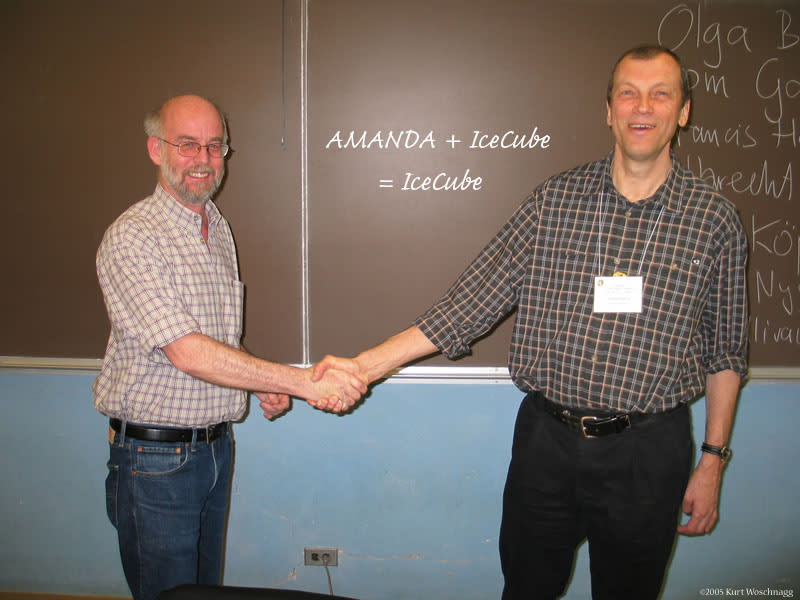
The Commission on Astroparticle Physics of the International Union of Pure and Applied Physics (IUPAP) has awarded the 2017 O’Ceallaigh Medal to Christian Spiering, an IceCube collaborator and a researcher at DESY-Zeuthen, for his “outstanding contributions to cosmic ray physics and to the newly emerging field of neutrino astronomy in particular.” Spiering will receive the award during the International Cosmic Ray Conference (ICRC), in July 2017, in Busan, South Korea.
Christian Spiering was a very early pioneer in particle astrophysics, with outstanding contributions to high-energy neutrino astronomy, which range from physics contributions to hardware development. In 1988, Christian and his group joined the Baikal experiment, which in 1996 achieved the world’s first detection of high-energy neutrinos in a large volume of deep water by measuring Cherenkov light from charged particles emerging from neutrino reactions. This success proved the viability of this technique for neutrino astronomy. In parallel, Christian had a leading role in the construction of the AMANDA neutrino telescope in the ice shelf of the South Pole and made the institute at Zeuthen a key player in this project. AMANDA paved the way for IceCube and demonstrated that ice could successfully accommodate the future kilometer-scale IceCube detector. Christian served as cospokesperson of AMANDA and then later as spokesperson of IceCube.
“It took 25 years from the time I entered this field to IceCube’s discovery cosmic neutrinos, just in time for my (official) retirement! You don’t get through that without stamina, persistent curiosity, and enthusiasm – and equally enthusiastic and competent colleagues and friends. I am really grateful that I could help shape such a thrilling piece of research.”

His collaborators praise Christian’s leadership in challenging situations, such as at Lake Baikal, when the collapse of the research infrastructure in the Soviet Union made for difficult working circumstances, or in other cases where unbiased judgment, diplomatic skills, and physics vision are needed.
In Europe and internationally, Spiering has promoted the collaboration of governments and researchers for the advancement of particle astrophysics. He was the chair of the science advisory committee of ASPERA, a European network of government agencies responsible for coordinating and funding national research efforts in astroparticle physics, and led the effort towards the first European roadmap for astroparticle physics. He is also the founder of the Global Neutrino Network (GNN), which aims for a closer collaboration and a coherent strategy among the ANTARES, Baikal, IceCube, and KM3NeT neutrino observatories.
The O’Ceallaigh Medal was established by the estate of the late Prof. Cormac O’Ceallaigh and the Dublin Institute for Advanced Studies and is awarded by the IUPAP Commission on Astroparticle Physics. The 2017 award ceremony will be held during the inauguration session of ICRC, which will also honor another IceCube collaborator, Subir Sarkar, a professor of physics at both the University of Oxford and at Niels Bohr Institute in Copenhagen, who has been recognized with the Homi Bhabha Award.